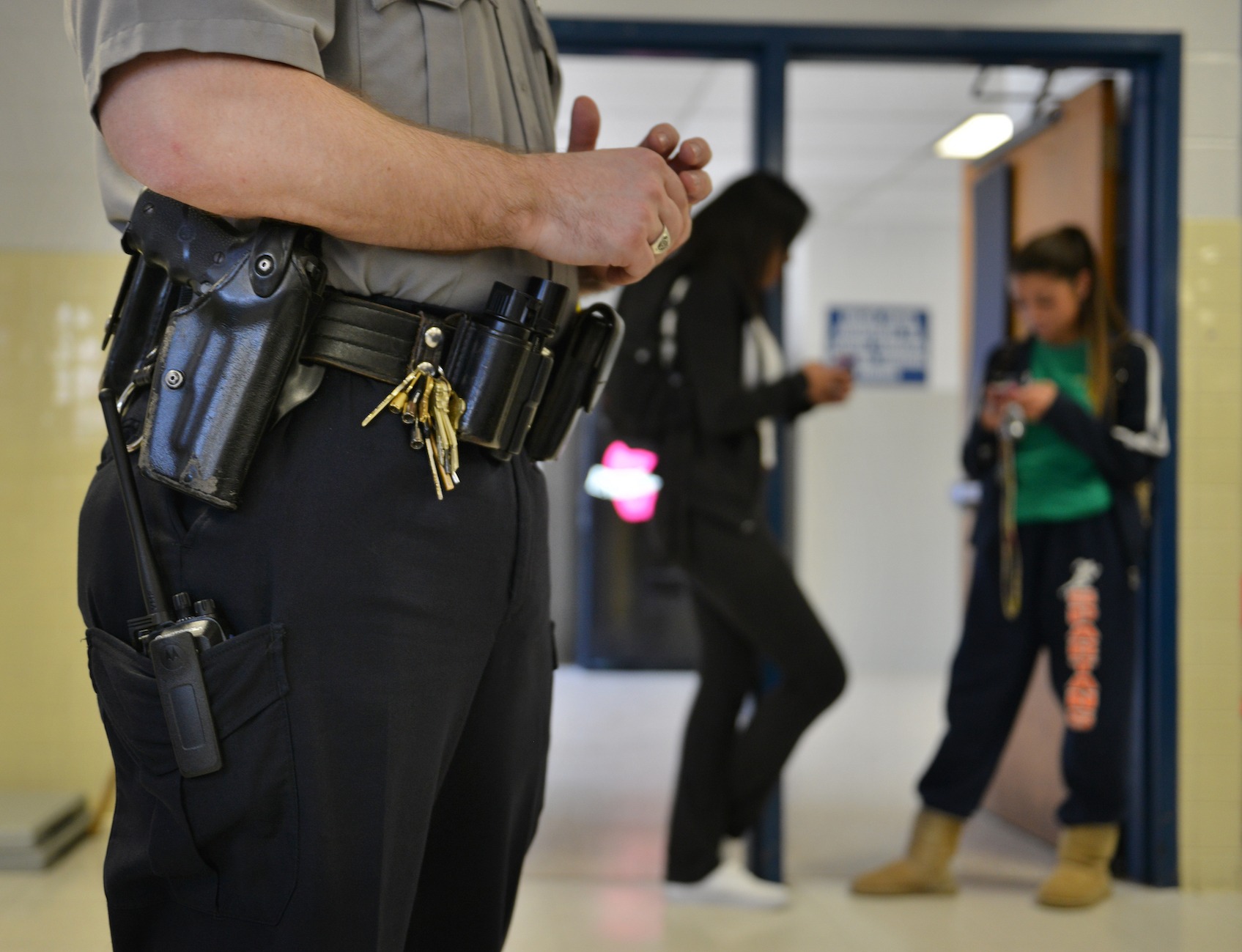States Should Make Schools Police-Free
Millions of students go to schools with a constant police presence but no readily available counselors, nurses, psychologists, or social workers. States should remove police from schools and shift that funding to professionals trained to support students.

The Point
Millions of students go to schools with a constant police presence but no readily available counselors, nurses, psychologists, or social workers. States should remove police from schools and shift that funding to professionals trained to support students.
States should remove police from schools:
- States should repeal laws requiring police presence in schools. Massachusetts recently repealed its requirement that each school have at least one “school resource officer,” or school cop. That decision is now left to superintendents.
- States should cut funding for school police and redirect it to critical support staff, like nurses and social workers. In Maryland, a bill has been introduced that would redirect state funding that had been used for school police to mental and behavioral health services.
- States should take cues from their cities. In response to the racial justice protests in the summer of 2020, school districts in Portland, Minneapolis, Denver, Oakland, and Charlottesville eliminated school police and directed that money instead toward mental and behavioral health services. As Denver School Board Director Tay Anderson told Chalkbeat Colorado, “We want to be able to have a school system where students are greeted with school nurses, with full-time mental health supports…and not the Denver Police Department.”
Police presence in schools harms students and doesn’t improve public safety:
- Police presence on campus criminalizes child and adolescent behavior. It turns something like disrupting class into a criminal charge, leading to arrest, prosecution, and time behind bars. And even when the criminal legal system isn’t invoked, the presence of school police still results in more punitive school-based punishments, like seclusion, suspension, and expulsion.
- Students of color and students with disabilities suffer the most from an ongoing police presence in school. Data collected by the Department of Education shows that these students are disproportionately referred to and arrested by law enforcement while in school.
- There is no evidence that a routine police presence makes schools safer. “In fact, the data really shows otherwise—that this is largely a failed approach in devoting a significant amount of resources but not getting the outcome in school safety that we are all looking for,” explained Marc Schindler, head of the Justice Policy Institute, to NPR.
Dive Deeper
- Behind the Push to Take Cops Out of Schools. Maryland State Delegate Julian Ivey and Public Justice Center’s Renuka Rege join The Appeal Live to talk about ending the school-to-prison pipeline.
- New Massachusetts Law Paves the Way for Police-Free Schools. Massachusetts ended a mandate requiring cops in schools. Now advocates want Maryland and Florida, the remaining states with such laws, to follow suit and break the school-to-prison pipeline.
- Replacing School Police with Targeted Student Resources. The movement to redirect police funding towards social services and community care has ignited calls to re-examine police presence in schools and shift funding towards other necessary services.
- To Cut Police Budgets, Start in Public Schools. The presence of police in schools is emblematic of America’s carceral approach to governing.

